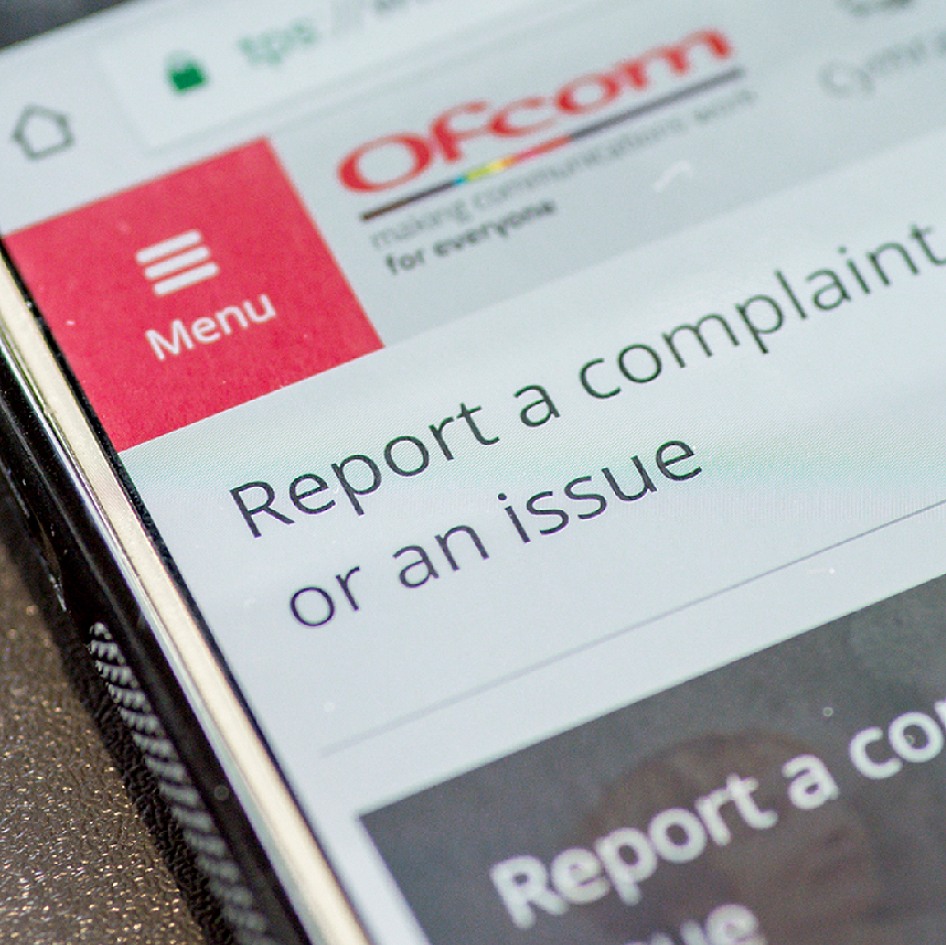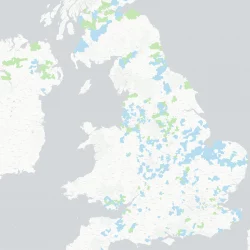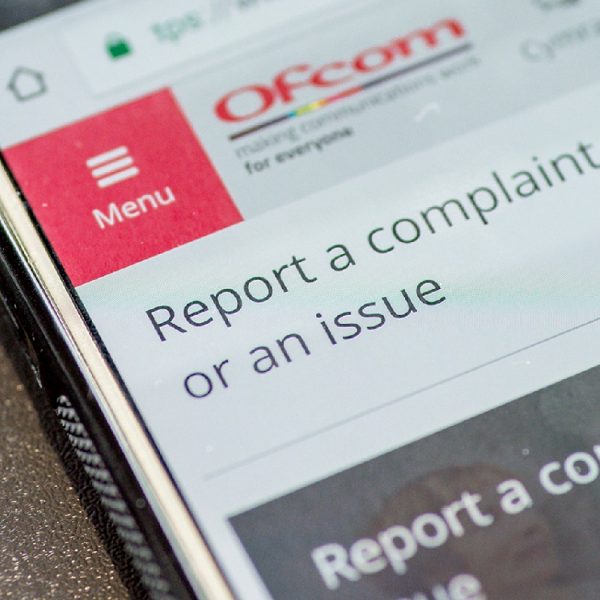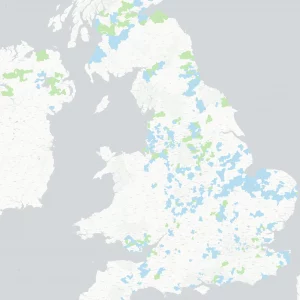Ofcom UK Consult on Automatic Compensation for Broadband ISP Faults
The UK communications regulator, Ofcom, has launched their first consultation on plans to give consumers an automatic right to compensation from their broadband ISP when things go wrong, such as due to a “loss or reduction of service.” But we might all end up paying more for our service to support it.
At present the issue of compensation for home broadband, phone and or mobile faults remain complicated and one that is often subject to the whims and contract terms of your chosen ISP. On the other hand many business broadband packages already offer with a Service Level Agreement (SLA) that will pay out compensation for significant service disruption, but such packages can also be much more expensive.
However Ofcom’s Strategic Review, which was published in February 2016 (here), proposed to change this by ensuring that all consumers should gain a right “automatic compensation” in the event of such failures. More recently the Government has promised to make it a part of their forthcoming Digital Economy Bill (here), which will be published soon.
As such today’s Call for Input represents Ofcom’s first direct consultation on the proposal, which notes that “a significant minority of consumers do experience problems with their communications services” and this can have very real consequences, such as on their ability to communicate and do business or shopping online etc.
Ofcom’s Statement
We recognise that consumers are able to seek compensation for some service quality issues today. However, our research shows a lack of awareness and uncertainty among consumers about compensation where it is available.
Further, obtaining compensation generally requires the consumer to make a complaint; they may need to ‘prove’ they have experienced poor service quality and receiving compensation will depend on the communication provider’s agreement. Where a communications provider refuses to provide appropriate redress or the consumer disagrees with the amount offered, a consumer can take the complaint to the relevant alternative dispute resolution (ADR) body or commence legal proceedings.
Making and pursuing a complaint can therefore be lengthy, involving time, effort and cost on the part of the consumer. The compensation payable may not be commensurate with the effort of making a claim. As a result, even engaged consumers who are negatively affected by a service issue may not consider it worth claiming redress. This is likely to be worse for vulnerable consumers, who may be even less likely to make a complaint.
Ofcom’s view is that an automating payment of compensation would make the current system easier and fairer to consumers, while also potentially reducing the burden on an ISPs support and complaint departments.
The regulator suggests that compensation may provide “incentives for providers to improve service quality” and may even reduce their future faults, although it should be stressed that most major outages are unexpected (e.g. accidental or criminal cable damage, storm damage, mains power cuts etc.) and so this argument has a few flaws. But it might indeed encourage faster repairs, although to do that would require more engineers and that’s an additional cost to factor.
At this point Ofcom takes the view that automatic compensation should only apply to residential consumers and smaller businesses (the latter often use domestic grade connections too), with larger businesses being left aside because they are probably already covered by an SLA.
The regulator also suggests that not all problems will be applicable for compensation and those that are allowed must lend themselves to being “objectively defined and measured.” In other words, Internet outages caused by a serious remote cable break might well be applicable, but slower than expected Internet speeds in fixed networks or frequent dropped calls could be more challenging.
Ofcom’s Statement
“Further, automatic compensation may not be suitable where resolving a service issue may require long term network investments. Consumers have a right to expect the quality of service specified in their contract and advertised in marketing material. In some cases, for example for slower than expected access line speeds in fixed networks or for frequent dropped calls in a consumer’s home, the quality provided may fall below what consumers can reasonably expect from the service.
In such cases, consumers may be better served through alternative forms of redress, such as a right to exit the contract than with automatic compensation, i.e. they might be better off switching their service package or provider.”
Similarly Ofcom said that people should not receive compensation where the “cause of the issue lies with the consumer“, such as a fault that occurs due to the equipment being used in your home.
Mind you we can perceive a grey area here as many of the big ISPs provide customers with a bundled broadband router on a sort of loan agreement, but if that device fails then who pays? Is it enough that the ISP simply be expected to replace the device, as often already happens? Ofcom will need to decide and consider the “proportionality of our intervention.”
Ultimately any compensation amounts are likely to be fairly small, which may for example reflect a proportion of the monthly fee that you pay for receiving the service (not yet decided). Never the less the proposal will all add an extra cost to service provision and one that may well outweigh any savings in other areas, which is something that the new consultation aims to clarify.
Equally there’s a useful mention in Ofcom’s consultation about tackling the supplier-side of things. For example, if BTOpenreach is responsible for a service outage then one way to balance the tables might be to also require an improvement in their compensation arrangements with ISPs. On this point Ofcom says “it is likely that the current SLAs and SLGs will need to be reviewed following the introduction of automatic compensation.”
Suffice to say that we wouldn’t be surprised if some broadband ISPs ended up raising their prices at a higher than typical rate in order to balance the books. Meanwhile Ofcom’s initial consultation will remain open until 22nd July 2016 and they will aim to propose changes by the end of this year, which will require another consultation.
UPDATE 12:42pm
Added in Ofcom’s statement that the compensation arrangements between wholesale and retail providers may need to be reviewed as a result of the changes.
“4.4 Where a retail provider buys services from a wholesale supplier, there will be instances when service quality issues will be the supplier’s fault but the retailer is required to pay compensation. We would expect retailers to be able to commercially negotiate and agree wholesale service levels with their suppliers, including payments for breaches, which will ensure that the retail compensation is totally or partially paid for by the party responsible for the service issue. Currently, where Openreach has SMP such as in Wholesale Local Access markets, it is required to specify certain service standards (Service Level Agreements or SLAs) in its contracts with customers, and provide for compensation (Service Level Guarantees or SLGs27) where those standards are not met. These SLAs and SLGs are currently negotiated commercially between Openreach and its wholesale customers and it is likely that the current SLAs and SLGs will need to be reviewed following the introduction of automatic compensation.”
Mark is a professional technology writer, IT consultant and computer engineer from Dorset (England), he also founded ISPreview in 1999 and enjoys analysing the latest telecoms and broadband developments. Find me on X (Twitter), Mastodon, Facebook and Linkedin.
« 3.9 Million Businesses Hit by Internet Outages in 2015, Lose GBP12.3bn
Latest UK ISP News
- FTTP (5511)
- BT (3514)
- Politics (2535)
- Openreach (2296)
- Business (2260)
- Building Digital UK (2243)
- FTTC (2042)
- Mobile Broadband (1972)
- Statistics (1788)
- 4G (1663)
- Virgin Media (1619)
- Ofcom Regulation (1460)
- Fibre Optic (1393)
- Wireless Internet (1389)
- FTTH (1381)
























































Comments are closed